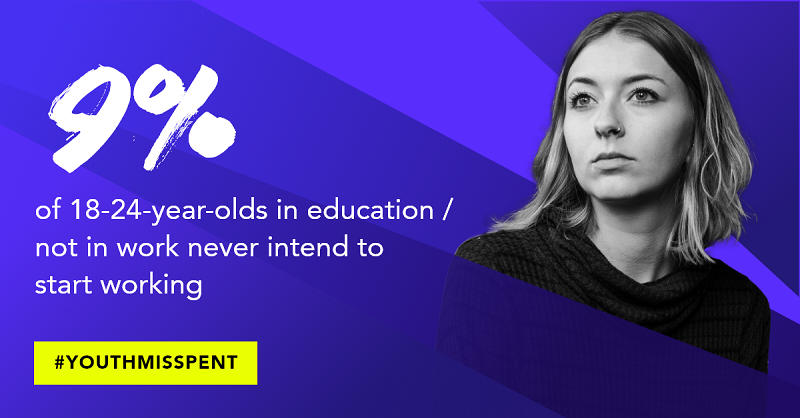New research suggests that Gen Z is losing hope in what they consider a ‘hostile labour market,’ after a poll found that nine per cent of respondents aged 18 to 24 do not plan on getting a job.
Despite the assertions of Kim K and Molly-Mae, it turns out that close to one in ten young people never intend to start working.
This is according to new research from City & Guilds, which found that as many as 227,000 Gen Zers across the UK who are currently studying or unemployed do not plan on getting a job during their lifetime.
It also revealed that 30 per cent of respondents aged 18 to 24 do not think they can achieve their career ambitions and that the general consensus among British youth trying to enter what they consider a ‘hostile labour market’ is one of hopelessness.
Now, as shocking as these figures may seem in the age of’ girlboss’ influencers repeatedly telling us to get our ‘fucking asses up and work’ because we ‘all have the same 24 hours in a day,’ are the results of the survey really all that surprising?
For starters, young people most certainly drew the short straw in lockdown, missing out on schooling, university, and training throughout the two year period it took the government to get ahead of COVID-19.
The impact this has had on their occupation prospects was confirmed recently by the Learning and Work Institute, which put out a report in 2021 warning of a ‘lost generation’ lacking direction, ambition, and drive post-pandemic.




















